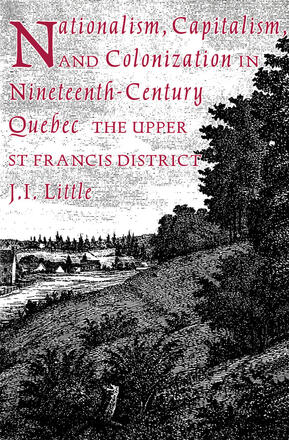
Nationalism, Capitalism, and Colonization in Nineteenth-Century Quebec
The Upper St Francis District
Description
The settlements, economically based on lumber alone, were locked into poverty and dependency by Anglophone-monopoly control of the spruce forests. J.I. Little examines the ultimate failure of the British and Quebec settlement projects and argues that the stranglehold of the monopolies was broken only by the belated extension of the rail network into the Upper St Francis district. Canadians have only recently begun to question their model of company-leased Crown forest reserves and to become interested in the more efficient Scandinavian model of small-scale, privately owned woodlots. This book is one of the first to explore the ideological contradictions and social costs which followed from the entrenchment of large-scale lumber companies in a settled zone.
Reviews
"The work makes a strong and original contribution to the history of Quebec." Brian Young, Department of History, McGill University. "On peut être ... séduit par l'intensité avec laquelle l'auteur a intégré la connaissance de ces sources et études dans le questionnement de sa recherche et le mouvement de son exposé ... Il contribue à élargir notre façon d'examiner ces questions et à remettre en question des approches établies, ce qui est une grande qualité scientifique." Jean Kesteman, département des sciences humaines, Université de Sherbrooke.
"The work makes a strong and original contribution to the history of Quebec." Brian Young, Department of History, McGill University.
"On peut être ... séduit par l'intensité avec laquelle l'auteur a intégré la connaissance de ces sources et études dans le questionnement de sa recherche et le mouvement de son exposé ... Il contribue à élargir notre façon d'examiner ces questions et à remettre en question des approches établies, ce qui est une grande qualité scientifique." Jean Kesteman, département des sciences humaines, Université de Sherbrooke.